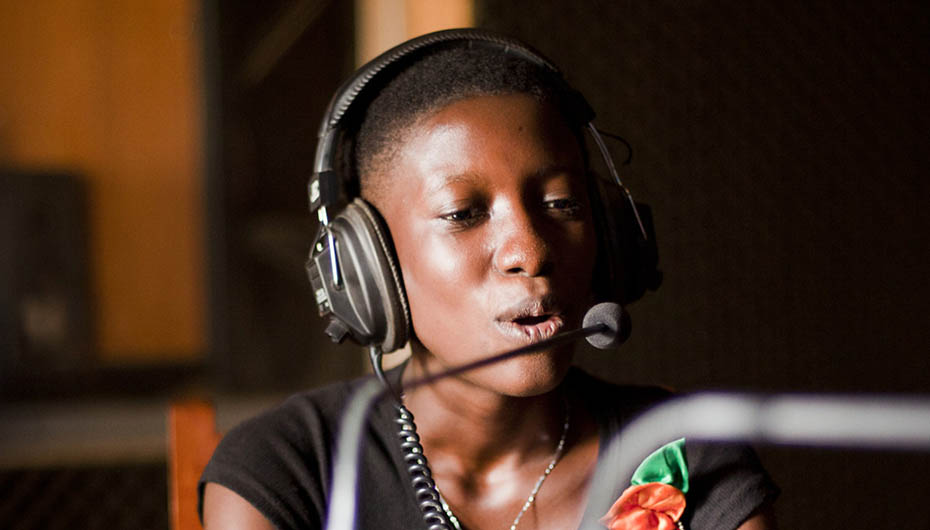Media Centre - Media release - 9 April 2019
Plan International report: Boys and men putting need for social acceptance ahead of girls’ right to feel safe

Groups of boys and men see street harassment, from catcalling and making lewd comments to following or chasing girls, as a form of entertainment and male bonding, according to a new report in five global cities from child rights organisation Plan International.
Unsafe on the Streets, which was based on testimonials of girls and young women living in Sydney, Kampala, Lima, Madrid and Delhi, found that male perpetrators of harassment are putting their need for social acceptance ahead of the needs of women to feel safe. Groups of men and boys give little to no thought to the targets of their abuse, the report shows.
“This vital research provides compelling evidence that in cities worldwide, men and boys are pushing girls and women out of public spaces and denying them their right to freedom of movement with sexist, often vicious behaviour,” said Susanne Legena, CEO of Plan International Australia.
“What’s particularly disturbing is that it’s clear that harassing girls and young women often serves as a group bonding exercise for men and boys – an enjoyable activity that many use to gain status among their male friends. This clearly highlights the urgent need for more positive examples of masculinity to show this behaviour is completely unacceptable.”
The research indicates that many men and boys suppress empathy for women in order to bond and often laugh at girls and young women who attempt to retaliate. This serves to strengthen the bond between the men, the research found – but humiliates the girls and young women in the process.
The research was carried out through Free to Be, an innovative map-based online social survey tool designed by girls and young women working in partnership with Plan International, Monash University’s XYX Lab and digital consultancy CrowdSpot.
Many of the girls who participated in the research across the five cities spoke out about being harassed by men who appeared to view their behaviour as a way to bond with one another.
A young woman, 22, from Sydney, said: “Men on their lunch break lurk to watch women going to the nearby gym in their sports gear. They elbow each other, point, laugh and take photos of Lycra-clad bottoms.”
Another young woman, 19, from Lima, said: “A group of men began to verbally harass me and one of them dared to touch me, the rest just laughed.”
Unsafe on the Streets takes a fresh look at the findings of Unsafe in the City, a report released by Plan International in October 2018, which found that girls in Sydney, Delhi, Kampala, Lima and Madrid aare suffering persistent harassment and abuse. The new report focuses specifically on the prevalence of harassment and violence perpetrated by groups of men and boys.
Unsafe on the Streets also found that:
- In some cases bystanders encourage harassment of girls, for example by laughing at the targets. Bystander intervention is rare; if it does happen, it’s often by women.
- Verbal harassment, and in particular catcalling, is the most common form of street harassment perpetrated by groups across the cities surveyed.
- Street harassment perpetrated by groups of men and boys is overwhelmingly sexual in nature and usually targets lone girls and women.
- A disturbing amount of harassment happens in and around school buildings, which can contribute to girls dropping out of school, particularly in Delhi.
- Some men desist from harassment when they realise girls are accompanied by other men.
- Some boys and young men suffer peer group pressure to harass: not joining in might result in them becoming a target of bullying.
- In Sydney, the harassment commonly involves abuse and threats yelled from vehicles
- Sydney women aged 21-25 were the most vulnerable, but victims were as young as 13.
Dr Nicole Kalms, director of Monash University’s XYX Lab, said that interrogating why and where group harassment happens is a first step to creating safer streets for women and girls.
“There is evidence that there are men who only harass women when in the company of other men, to reassert a group identity of men as the ‘dominant sex’,” she said. “This research uncovers how men’s peer support and ‘group membership’ can work to condone, excuse and normalise different forms of gender-based violence.”
Ms Legena continued: “As prime perpetrators of harassment, boys and men can be key catalysts in changing street behaviour. Girls and women should not have to change the way they live their lives to stay safe.
Writer Benjamin Law, Plan International Australia’s newest ambassador, said he had also experienced threatening harassment on the streets of Sydney.
“Obviously as a weedy gay Asian guy, I’ve sometimes found myself the target of abuse. And yet I still know – and the stats show – that my experiences don’t nearly come close to the kind of volume of harassment girls and women face.
“What’s worrying is that the data also shows that it’s not just obviously ‘bad men’ who make women feel uncomfortable and vulnerable, but men we know. In fact, we may even be one of them. And if we’re not an active part of the solution, we’re part of the problem.”
Plan International is working with men and boys to change their attitudes as part of its Safer Cities for Girls programme.
Eric, 24, has changed his behaviour towards girls and young women since joining the programme in Kampala, Uganda: “Through Safer Cities, we were taught to be empathetic. It didn’t happen overnight, but gradually, we started to see girls and young women in a different way: as our sisters, our mothers, our cousins, our wives. Our mentality changed.”
Notes to Editors:
- Unsafe in the Streets was based on 750 testimonials from girls in Delhi, Kampala, Lima, Madrid and Sydney.
- Girls and young women participating in the research were encouraged to use the web-based map of their city by dropping a purple ‘good’ pin on areas where they felt safe and an orange ‘bad’ pin on the locations where they felt unsafe or uncomfortable. They could then provide a description as to why they like or dislike that part of the city, including details any incidents they experienced there. All responses were anonymous.
- Plan International runs its Safer Cities for Girls programme in three of the cities which participated in the research – Lima, Kampala and Delhi – and also in Cairo, Nairobi, Hanoi, San Francisco, Asunción in Paraguay and Honiara, Solomon Islands. The programme aims to build safe, accountable and inclusive cities with and for adolescent girls.
About Plan International
Plan International is a leading girls’ rights agency. We champion girls’ rights because we know that there is nowhere in the world where girls are treated as equals. We work alongside children, young people, supporters and partners to tackle the root causes of injustices facing girls and the most marginalised children.
Plan International works in more than 75 countries to help create a just world that advances children’s rights and equality for girls. Our local office, Plan International Australia funds programs to support children in more than 25 countries, as well as sponsorship programs across the federation.
Media contacts

